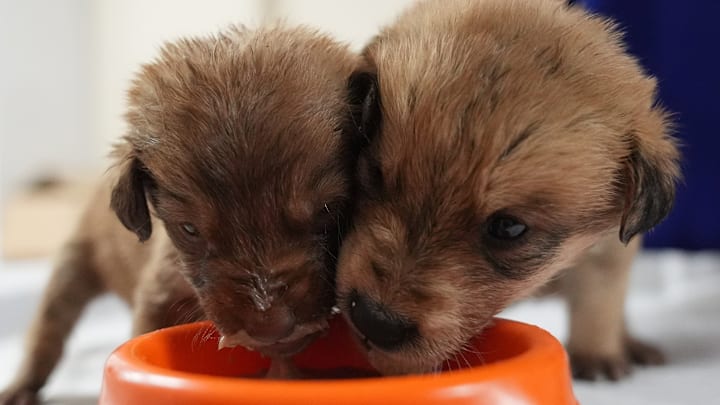When it comes to make sure our animals are staying healthy, knowing their dietary needs is essential. And not only is it important to feed them the right food for their breed, but also for their age.
While puppies have very specific nutrition requirements, so too do older dogs. In fact, after a certain age, our pups are considered seniors and have their own requirements that are different from when they were younger. But when should we be making the change in terms of moving from puppy food to a more adult diet?
We decided to get some answers from an expert, specifically a Veterinary Medical Advisor for the brand Rover. And specifically, we asked when should a puppy's diet change over to one that an adult dog is eating.
When should your puppy make the switch to an adult dog food diet?
Rover's Dr. Rebecca Greenstein, broke down her answer in a way that really dives into how this transition works, in particular based on the breed size.
"- The general benchmark for transitioning to an adult diet is roughly 12 months of age, but this depends on the size and breed of your dogRebecca Greenstein
- Smaller breed pups can switch over as early as 9 or 10 months, while medium dogs generally stick to the one-year mark, larger dogs can be moved over at 12 to 18 months and for some giant breeds, even over 18 months may be appropriate to make the change"
Obviously her response to our question makes perfect sense. But we also learned that the development of your dog plays a part in when to make the switch. Basically, it is about how they are developing physically. At the same time, overly active dogs experiencing growth at a more advanced pace might actually need to stay on their puppy food longer. It really is about the individual dog or breed.
As our puppies grow up, you may also want to consult with your veterinarian, as they may have some suggestions that make it easier to determine when and how to make the switch. After all, you and your vet are a team, and they have your pups best interests at heart.
